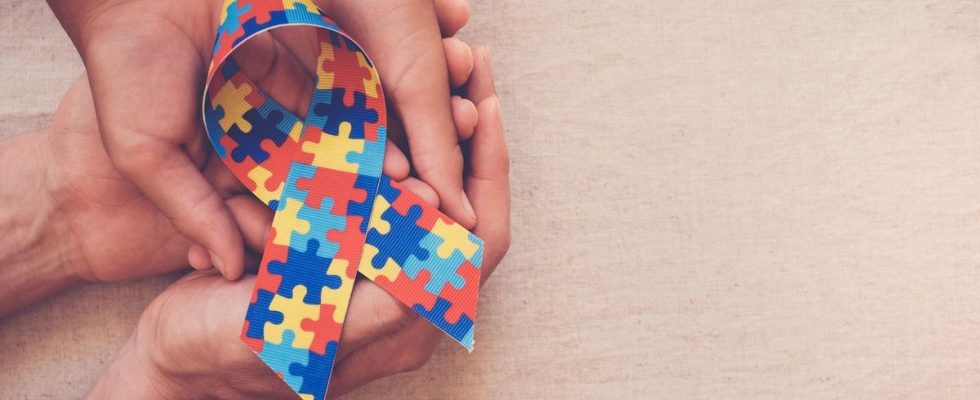Published on
Updated
Reading 3 min.
Marie Lanen
Head of parenting sections (baby, pregnancy, family), psychology and beauty

On the occasion of World Autism Awareness Day this April 2, a national campaign called “Better understanding autism means better living together” will be broadcast on several digital media. Three films which aim to inform the general public about this neurodevelopmental disorder.
“These three films present different themes in order to better show what autism is, but also the impact that this disorder can have on families.” comments Etienne Pot, interministerial delegate to the national strategy for neurodevelopmental disorders, whom we interviewed shortly before the broadcast of this campaign. A desire to inform the general public about the many issues and preconceived ideas surrounding autism which takes the form of three spots, broadcast on different television channels, social networks and relayed by personalities, stakeholders such as Samuel Le Bihan, Paul Mirabel and Elie Semoun on the occasion of World Awareness Day Autism.
Deconstructing preconceived ideas about autism, a necessity for more inclusion
The Government’s objective through this campaign is to change the way the general public sometimes views autism. Indeed, the latter (and their families) still suffer from many preconceived ideas which can have a significant impact on their quality of life. “The idea is to provide keys to understanding to promote living together” insists Etienne Pot. Talking about autism differently is also the desire of Valentine Lecêtre, mother of a young Sasha, aged 9, who was diagnosed with autism at 16 months. Her testimony is a new look at how to live and help your son to live with his autistic disorders and integrate into our society. In her book, she recounts her fight, the obstacles that seem insurmountable, the phases of discouragement. But above all, she gives the essential keys from his experience to help his child overcome autism. Today, Sasha is a boy like any other. This work is a real message of hope: “no, autism is not inevitable”.
Government optimism not shared by associations
In a press release published on March 27, M’Hammed SAJIDI, the President of the Vaincre l’Autisme association recalled that “successive government strategies have miserably failed to take into account the specific needs of autistic people. The current policy has diluted the issue of autism among other neurodevelopmental disorders to satisfy particular interests, to the detriment of the recognition and care of autistic adults. This approach leaves autistic adults totally neglected, deprived of education and appropriate care.” Issues known to the Government:We are aware of the delays, our national strategy aims to fill them. One of the main challenges is to identify autism in children early in order to ensure optimal care. The second issue is that of catching up, for all people diagnosed over the age of 12 as well as adults; not to mention women who suffer from a very significant delay in diagnosis” recalls Etienne Pot.
Another issue (and not the least), the number of structures to establish these diagnoses as well as the waiting time. Indeed, within the framework of the Thematic Research and Care Network (RTRS), which was labeled in 2007 in the form of a scientific cooperation foundation dedicated to the fight against mental illnesses (the FondaMental Foundation), 53 Expert Centers brought together in 4 national networks have been created since 2010. Moreover, parliamentarians, institutions and users are calling for the generalization of these Expert Centers in order to better respond to patients and their families.
Many issues which will perhaps find their place in the Government’s commitments and the 680 million euros allocated to the 2023-2027 National Strategy for Neurodevelopmental Disorders: Autism, DYS, ADHD, DID.
